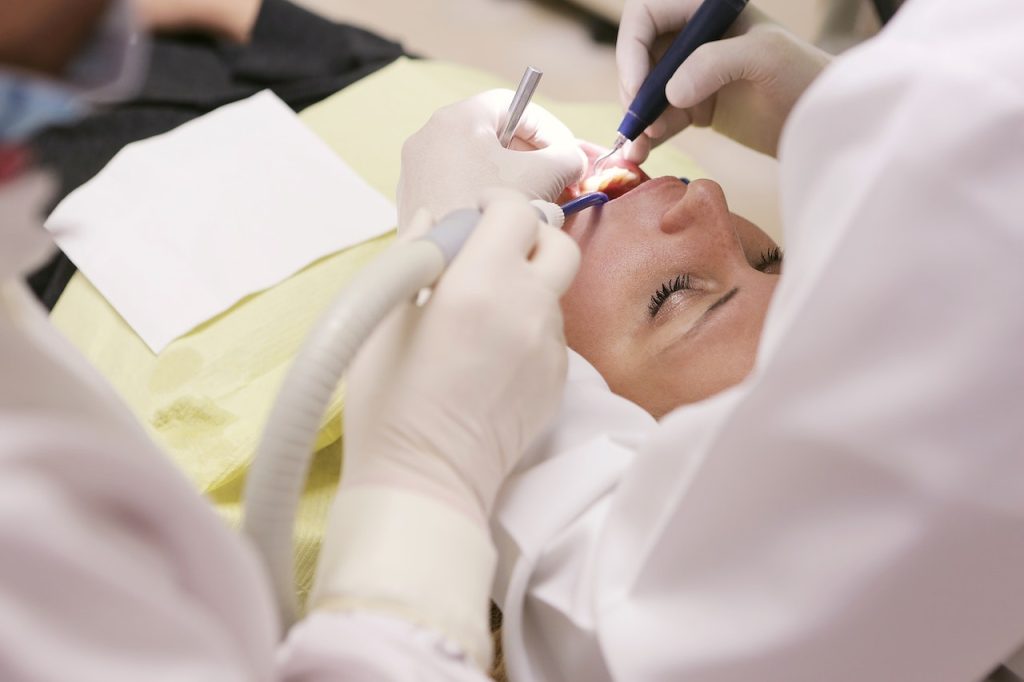Are you experiencing discomfort or pain in your mouth? Do you feel pressure in your jaw or have trouble opening your mouth wide? If so, you might be suffering from impacted wisdom teeth. Also known as third molars, wisdom teeth are the last to emerge at the back of your mouth, and they can cause various problems if they don’t come in properly. In fact, according to a study published in the Journal of Oral and Maxillofacial Surgery, the prevalence of impacted wisdom teeth in the United States is around 72%, with higher rates in urban areas like Los Angeles.
Here are six warning signs that your wisdom teeth might be impacted:
1. Swollen Gums
Swollen or tender gums could indicate that your wisdom teeth are impacted, which means they cannot emerge appropriately from your gums. This condition can make eating and speaking difficult and may cause infection if not addressed promptly. Impacted wisdom teeth can cause inflammation, swelling, and pain in the gums surrounding them. It’s essential to see a dentist if you suspect that you have impacted wisdom teeth. They can evaluate your situation and recommend treatment options, such as extraction or surgery, to alleviate your symptoms and prevent further complications.
2. Difficulty Opening Your Mouth
If you’re experiencing pain or difficulty when opening your mouth, it may be a sign of impacted wisdom teeth. This condition is common in Los Angeles, and if you are a resident facing the same issue, know that you don’t have to suffer in silence. With the help of a qualified dental professional, you can undergo wisdom teeth removal in Los Angeles to get relief from your symptoms.
Pain or Discomfort
Have you ever experienced a dull, throbbing ache in the back of your mouth that won’t go away? Maybe you’ve noticed some swelling or redness in your gums or bleeding when you brush or floss. If so, your wisdom teeth may be causing you discomfort.
Impacted wisdom teeth occur when these third molars don’t have enough room to emerge fully, causing them to push against surrounding teeth and gums. This pressure can lead to pain and discomfort, ranging from a mild ache to a sharp, shooting pain that makes it difficult to eat or speak.
But don’t worry; there are ways to ease the pain and discomfort caused by impacted wisdom teeth. Your dentist or oral surgeon may recommend pain medication or suggest using a warm compress to help alleviate swelling and inflammation. Sometimes, the impacted teeth may need to be removed to provide relief and prevent further complications.
So, if you’re experiencing pain or discomfort in the back of your mouth, don’t ignore it. Please schedule an appointment with your dentist and let them help you get back to feeling your best.
3. Bad Breath
If you’ve been struggling with bad breath lately, impacted wisdom teeth could be to blame. These third molars can become impacted when they don’t have enough space to emerge properly, creating pockets where bacteria can thrive. The bacteria that grow around impacted wisdom teeth can produce a foul odor that lingers even after brushing and flossing. This can be embarrassing and affect your confidence in social situations, especially if you’re constantly worried about your breath. If you suspect that your wisdom teeth may be impacted, it’s important to schedule an appointment with your dentist or oral surgeon to have them examined. They can help determine the best course of action, which may include wisdom teeth removal to alleviate the underlying problem and improve your oral hygiene. Don’t let impacted wisdom teeth hold you back from feeling confident and fresh.
4. Changes in Your Bite
Changes in your bite, such as difficulty in how your teeth fit together or discomfort and pain when biting or chewing, can indicate the presence of impacted wisdom teeth. When your wisdom teeth do not grow properly, they can push on surrounding teeth, causing them to shift or move out of place, leading to changes in your bite. If you notice any of these symptoms, scheduling an appointment with your dentist is important. They can perform a thorough evaluation of your teeth and gums, take x-rays if necessary, and recommend the appropriate treatment, which may include extraction or surgery, to prevent further complications and restore your bite to its normal function.
5. Headaches or Ear Pain:
Are you experiencing painful headaches or earaches that just won’t go away? Believe it or not, your wisdom teeth could be the culprit! When your wisdom teeth don’t grow in properly, they can put pressure on the nerves and muscles around them, causing pain to radiate to other areas of your head and ears. This can be incredibly uncomfortable and, in severe cases, even cause migraines. The surrounding tissues can also become inflamed and swollen, making matters worse. If you’re suffering from these symptoms, don’t ignore them! Make an appointment with your dentist ASAP to get to the bottom of the issue. They can perform a thorough exam and x-rays to see if your wisdom teeth are impacted and recommend the best treatment options to alleviate your pain, which could include extraction or surgery. So, don’t suffer in silence – take action and get relief from those pesky headaches and earaches!
Conclusion
If you’re experiencing any of the warning signs of impacted wisdom teeth, it’s essential to seek dental attention promptly. Ignoring these symptoms can lead to severe complications, including infections, cysts, and even nerve damage. By addressing the problem early on, your dentist can provide the appropriate treatment to alleviate your pain, prevent further complications, and improve your oral health. Remember, the key to maintaining healthy teeth and gums is to schedule regular dental check-ups and seek prompt attention for any unusual symptoms or changes in your oral health. So, don’t ignore the warning signs – take action and protect your smile for years to come!



